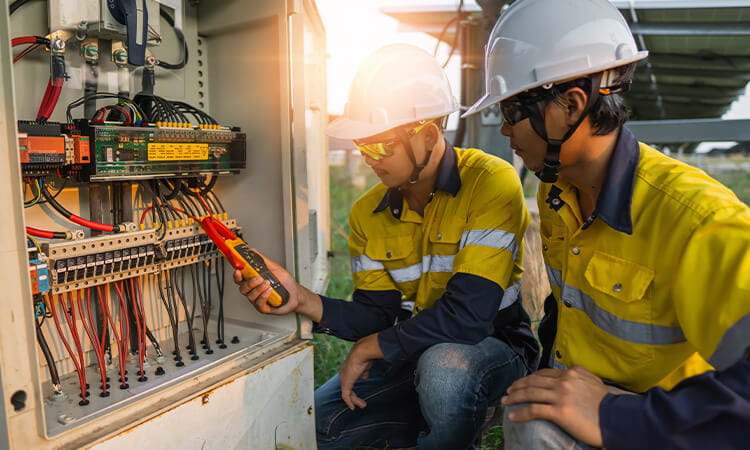What does an electrical engineer do?
Have you ever wondered, 'what do electrical engineers do and what is electrical engineering?'. From the electrical grids that power our businesses and homes, to the communication technologies that connect us – electrical engineering enables it all. As an electrical engineer you would design, develop and maintain electrical equipment and systems. For example, you might work with solar power generation and distribution, or you could contribute to the design of the next smartphone. Troubleshooting issues, complying with regulations, and staying up-to-date with the latest technologies would also be part of your role.
Your workplace would change depending on the specific job or industry you’re in, but could take place in an office setting, laboratory or manufacturing facility.
Is a career as an electrical engineer right for me?
If you love a bit of maths, physics, and computer science, a career in electrical engineering might suit you. Other skills and attributes beneficial for this role include:
- the ability to identify, analyse and solve problems
- an interest in technical design
- strong attention to detail
- good oral and written communication skills
- the ability to be both practical and creative
- the ability to work independently and as part of team.
How to become an electrical engineer
Every journey to study is individual and there are several paths to reaching your career in electrical engineering. A bachelor degree in engineering or science, majoring in electrical engineering is essential to start an electrical engineer career path. Networking is also key, with membership in organisations such as Engineers Australia playing a significant role in professional development.
Source: yourcareer.gov.au
© Commonwealth of Australia

The responsibilities of an electrical engineer include:
- developing, designing, and updating engineering plans, and calculating project costs.
- planning and designing power stations and power generating equipment.
- developing products such as electrical motors, components, or appliances.
- supervising the installation and maintenance of electrical systems.
- determining the specifications for circuits, transformers, and other necessary equipment for projects.
- understanding and interpreting technical drawings, standards, and regulations.
- overseeing tests of electrical systems, identifying faults, and implementing corrections.